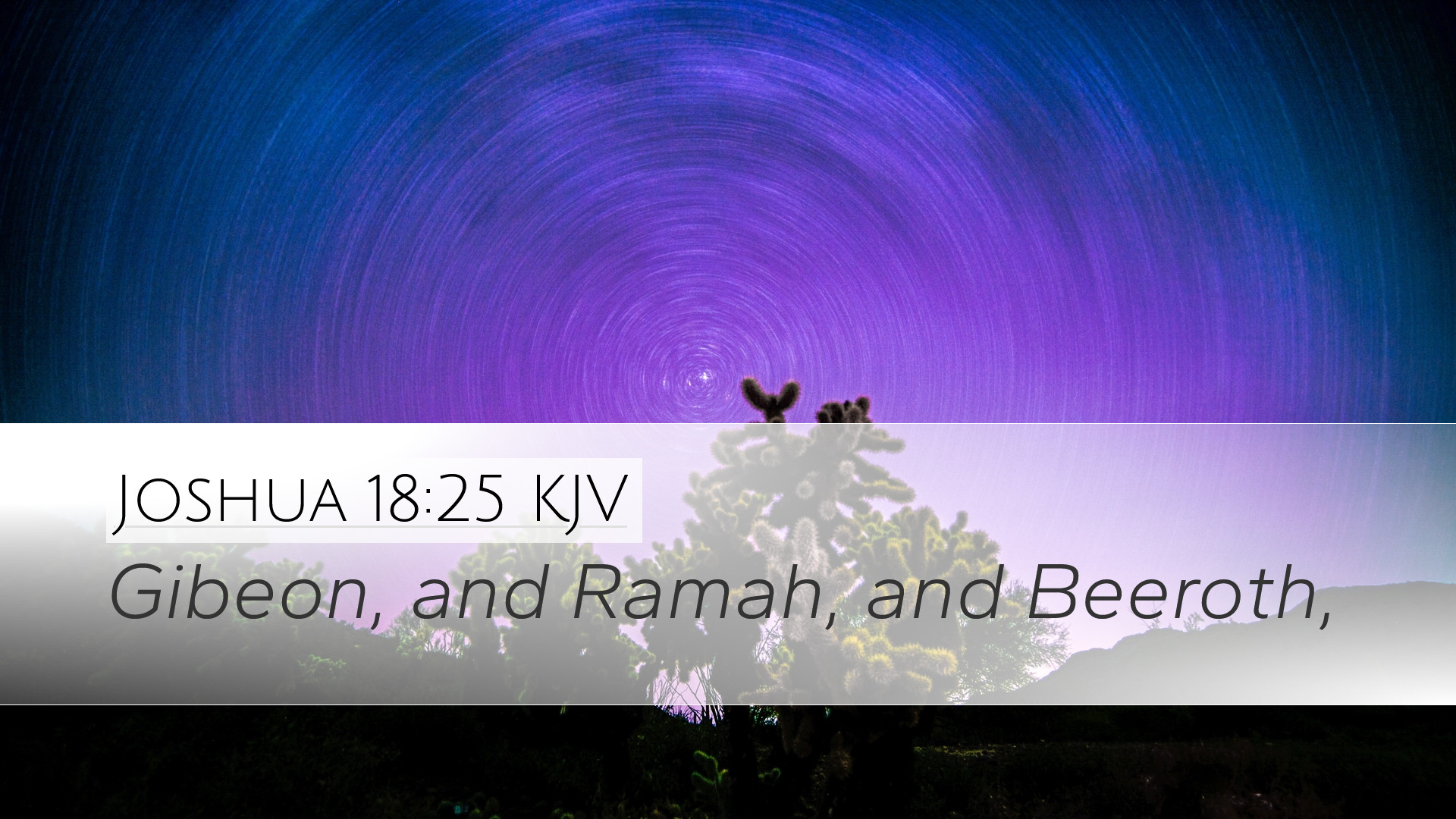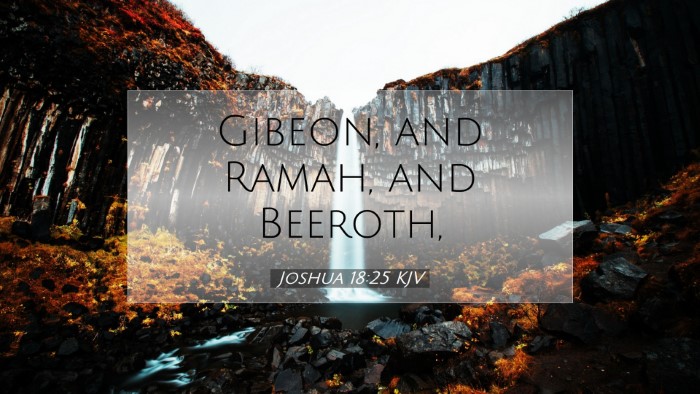Commentary on Joshua 18:25
Verse: "And Gibeon, and Ramah, and Beeroth," - Joshua 18:25
Introduction
This verse captures a significant moment during the division of the Promised Land among the tribes of Israel. Gibeon, Ramah, and Beeroth represent key cities that highlight God's providence and the fulfillment of His promises. In this commentary, we will explore various insights from well-respected public domain commentaries, providing a comprehensive view of the implications and theological significance of this passage.
Contextual Background
The book of Joshua is primarily concerned with the conquest and settlement of Canaan after the Israelites' exodus from Egypt. Under Joshua’s leadership, the Israelites continue to conquer territories as God fulfills His promises. This chapter focuses on the allotment of land to the remaining tribes after much of the land had been taken.
Geographical and Historical Significance
-
Gibeon:
Gibeon was a significant city for the Hivites and its inhabitants made a covenant with Israel (Joshua 9). Its inclusion in the inheritance of Benjamin highlights God's mercy and the complex nature of His covenant with His people.
-
Ramah:
Ramah is known as a place of prophetic significance where Samuel served. It reflects the importance of spiritual leadership in the Israelite community and underscores a continual divine guidance.
-
Beeroth:
Beeroth, another city of the Gibeonites, shows God’s providence towards those who recognized His sovereignty. The mention of these cities serves to highlight the continuing sign of God's promise to the Israelites despite human actions.
Theological Reflections
The listing of these cities is not merely a geographical note; it serves to demonstrate God’s faithfulness. Matthew Henry asserts that the careful recording of cities indicates God's precise fulfillment of His promises and the significance of each location within His providential plan.
Divine Promise and Covenant
Adam Clarke emphasizes the aspect of divine promise and its realization through this settlement. The mention of Gibeon, Ramah, and Beeroth unveils the complexity of God’s covenant, showing that even cities that had initially acted deceitfully can find their place in God's sovereign plan.
Judgment and Mercy
Albert Barnes notes a dual theme of judgment and mercy in these cities. Gibeon, by its crafty dealings, could have faced judgment, yet it is preserved in Israel’s history, pointing towards the future where mercy triumphs over judgment. This juxtaposition offers profound lessons for contemporary faith communities about grace and providence.
Practical Applications
For pastors and theologians, this passage serves as a reminder of God's unmatched sovereignty and grace. It calls for reflection on how God's plans often transcend human understanding and actions. Understanding Gibeon's fate prompts deeper exploration about divine guidance in perplexing circumstances.
Lessons for Leadership
As leaders, whether in church or community, it is essential to remember that our actions can have lasting implications. The Israelites' covenant with Gibeon shows how decisions rooted in integrity lead to blessing, even in challenging scenarios.
Call to Faithfulness
This passage reminds us that all cities, and by extension individuals, are included in God's overarching plan. Believers are called to faithfulness, to see each person and situation as part of God’s design. Our understanding of scripture informs our approach to those around us, encouraging a posture of grace.
Conclusion
The cities mentioned in Joshua 18:25 serve as more than geographical markers; they illustrate the richness of God's covenant, His mercy intertwined with just judgment, and His faithfulness. They challenge us to ponder the depths of His providence. This profound narrative invites theologians, scholars, and laypeople alike to appreciate the dynamism of God's interactions with humanity throughout history.


